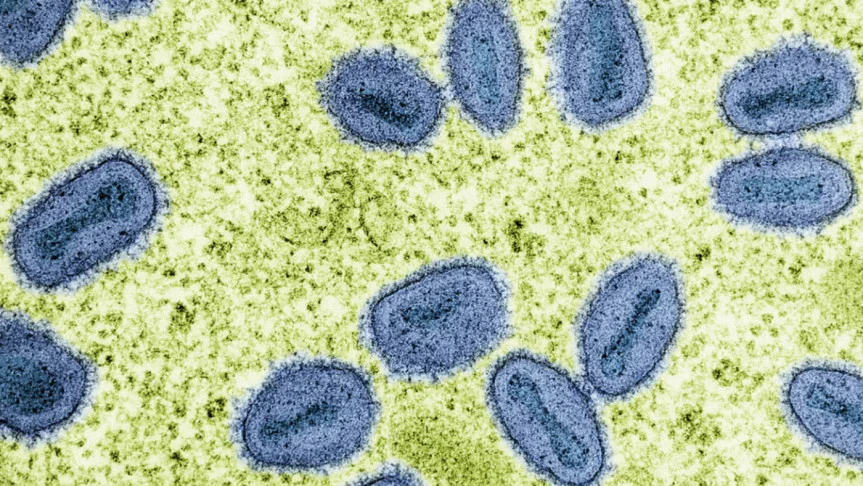What is Mpox and Who is Most at Risk? Mpox, previously known as monkeypox, is a highly contagious disease that the World Health Organization (WHO) has labeled as a public health emergency in parts of Africa. The disease has led to the deaths of at least 450 people in the Democratic Republic of Congo, according to BBC reports.
Key Risk Factors for Mpox: Newborns and Pregnant Women: These groups are particularly vulnerable to Mpox infection. Weakened Immune Systems: Individuals with conditions like uncontrolled diabetes, kidney disease, cancer, or AIDS are at higher risk. Close Contact: Mpox spreads through direct physical contact, exposure to blister fluids, body secretions, and prolonged contact with infected individuals.
What is Mpox and Who is Most at Risk?
Mpox, previously known as monkeypox, is a highly contagious disease that the World Health Organization (WHO) has labeled as a public health emergency in parts of Africa. The disease has led to the deaths of at least 450 people in the Democratic Republic of Congo, according to BBC reports.
How is Mpox Spread?
Mpox can be transmitted between humans through:
- Direct physical contact with an infected person.
- Contact with blister fluids or other body secretions.
- Airborne transmission through coughing or sneezing, particularly with prolonged exposure.
- Contaminated items, such as bedding or clothing, can also spread the virus.
Preventing Mpox Infection:
To reduce the risk of Mpox infection:
- Avoid direct contact with infected individuals.
- Wear masks if you’re providing care to someone with Mpox.
- Wash your hands regularly with soap and water for at least 30 seconds.
- Use hand sanitizer when soap and water are unavailable.
- Disinfect items used by the infected person with appropriate cleaners.
- Maintain distance from wild animals that might carry the virus, including rodents, squirrels, and rabbits.
Complications and Treatment of Mpox:
In most cases, individuals recover from Mpox within a few weeks. However, those with weakened immune systems may experience severe complications, such as:
- Skin infections
- Pneumonia
- Mental confusion
- Eye inflammation, which can lead to vision loss
If you or someone you know is at high risk, it’s crucial to seek medical advice immediately if symptoms appear.
Is There a Vaccine for Mpox?
The smallpox vaccine is highly effective against Mpox. However, this vaccine is not widely available globally. People who were vaccinated against smallpox before 1980 may have significant protection against Mpox.
Mpox Treatment Options:
Most Mpox cases resolve without specific treatment. However, treatment can help alleviate symptoms:
- Paracetamol for fever
- Keeping blisters dry
- Consuming nutritious food
- Getting adequate rest
- Staying hydrated
If complications arise, immediate medical consultation is necessary.
Mpox and Sexual Transmission:
While Mpox is not primarily a sexually transmitted infection, it can be spread through close physical contact, including sexual activity, with an infected person.
Global Spread of Mpox:
As of the latest updates, new Mpox outbreaks have been reported in 101 countries (as of August 29, 2022). From 1970 to April 2022, Mpox was primarily found in 11 countries in Central and West Africa.
When to Seek Help:
If you develop a fever and blisters within 21 days of contact with an infected person or after returning from an affected country, you may be at risk for Mpox. In such cases, contact the IEDCR hotline immediately for assistance.
Stay Informed and Safe:
Keep yourself updated on the latest Mpox information and follow recommended guidelines to protect yourself and your loved ones from this potentially serious disease.
Read How to Overcome Car Sickness and Motion Sickness
Visit www.myfirstcart.com for your healthy needs.

